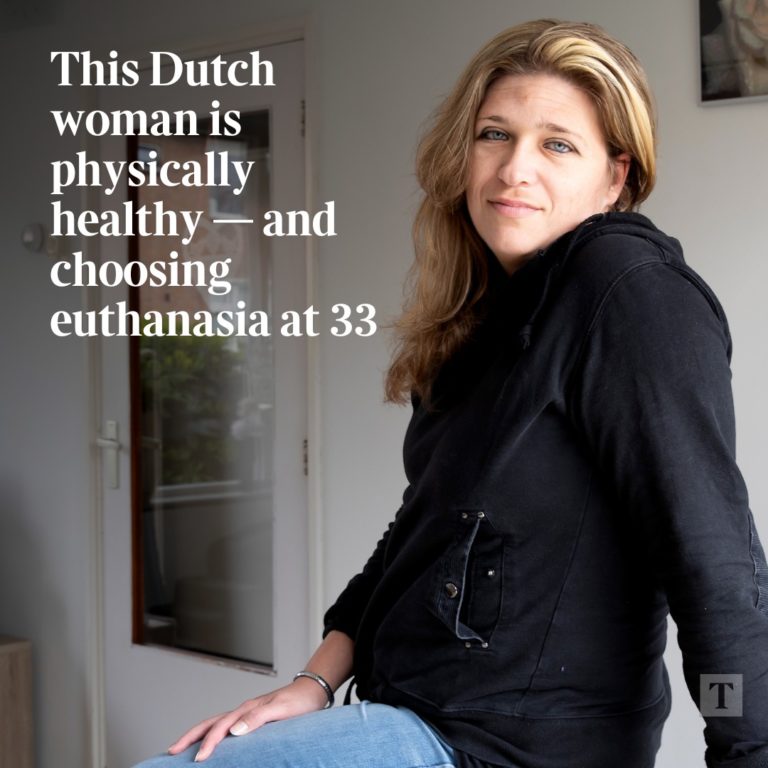Exploring The Complexities Of Jolanda Fun Euthanasia
The term "Jolanda Fun Euthanasia" has gained significant attention in recent years, raising important discussions around the ethics and implications of assisted dying. This complex topic evokes a wide range of emotions and opinions, often centered around personal choice, medical ethics, and societal values. As more individuals seek control over their end-of-life decisions, the case of Jolanda Fun serves as a poignant example of how personal narratives can illuminate the broader issues surrounding euthanasia.
In a world increasingly focused on individual rights, the story of Jolanda Fun highlights the often fraught relationship between personal autonomy and societal norms. The discussion surrounding euthanasia is not just about legality; it encompasses deep philosophical questions about the nature of suffering, dignity, and the right to choose one's own fate. As more people become aware of the complexities surrounding this topic, it is crucial to approach it with empathy and understanding, recognizing the diverse perspectives that exist.
As we delve into the life of Jolanda Fun and her experiences with euthanasia, we will explore the many facets of this sensitive issue. From her personal story to the broader implications of euthanasia legislation, this article aims to provide a comprehensive overview that encourages thoughtful dialogue and reflection on a subject that deeply impacts many lives.
Who is Jolanda Fun?
Jolanda Fun was a remarkable individual whose story brought the issue of euthanasia into the public eye. Her journey sheds light on the personal struggles faced by those considering assisted dying and the societal implications of such choices.
Jolanda Fun's Biography
| Personal Detail | Information |
|---|---|
| Name | Jolanda Fun |
| Date of Birth | March 15, 1985 |
| Nationality | Dutch |
| Occupation | Artist and Activist |
| Cause of Death | Terminal Illness |
What Led Jolanda Fun to Consider Euthanasia?
Jolanda Fun's decision to consider euthanasia stemmed from her battle with a terminal illness that profoundly affected her quality of life. Despite her courage and resilience, her suffering became unbearable, leading her to explore the option of assisted dying. This difficult choice was not made lightly; it involved deep personal reflection and discussions with her family, friends, and medical professionals.
What Are the Legal Implications of Jolanda Fun Euthanasia?
The legal landscape surrounding euthanasia varies significantly from country to country. In the Netherlands, where Jolanda Fun resided, euthanasia is legal under strict conditions. This legal framework allows individuals like Jolanda to make choices about their own end-of-life care, provided they meet specific criteria. Understanding these legal implications is vital for those considering euthanasia as an option.
What Criteria Must Be Met for Euthanasia in the Netherlands?
- The patient must be experiencing unbearable suffering with no prospect of improvement.
- The decision must be voluntary and well-considered.
- The patient must be of sound mind and able to make their own decisions.
- A second medical opinion is required to confirm the diagnosis and prognosis.
How Did Jolanda Fun's Story Impact Society's View on Euthanasia?
Jolanda Fun's journey sparked widespread dialogue about euthanasia, particularly regarding the ethical considerations of assisted dying. Her story resonated with many, prompting discussions about the importance of personal autonomy and the right to die with dignity. Advocates for euthanasia argue that individuals should have the right to choose their own fate, especially in the face of unbearable suffering.
What Are the Ethical Concerns Surrounding Euthanasia?
The ethical concerns surrounding euthanasia are multifaceted and often deeply polarizing. Critics argue that legalizing euthanasia could lead to a slippery slope, where vulnerable individuals may feel pressured to choose death over life due to societal expectations or financial burdens. On the other hand, proponents contend that the right to die should be viewed as an extension of personal freedom and autonomy.
How Can Society Support Individuals Considering Euthanasia?
While the debate surrounding euthanasia continues, it is crucial for society to support individuals facing such difficult decisions. This support can take many forms, including:
- Providing access to comprehensive palliative care to alleviate suffering.
- Encouraging open and honest discussions about end-of-life choices.
- Fostering a culture of understanding and empathy towards those considering euthanasia.
What Lessons Can Be Learned from Jolanda Fun's Experience with Euthanasia?
The story of Jolanda Fun serves as a powerful reminder of the importance of compassion and understanding in discussions about euthanasia. Her journey illustrates the complexities of individual choice and the need for society to navigate these conversations with sensitivity. As we reflect on her experience, it is essential to recognize the humanity behind the legal and ethical debates, fostering a dialogue that prioritizes empathy and respect for personal autonomy.
What Future Changes Might Occur in Euthanasia Legislation?
As the conversation around euthanasia evolves, it is likely that future changes in legislation will continue to shape the landscape of assisted dying. Ongoing discussions may lead to more inclusive laws that address the needs of diverse populations, ensuring that individuals have access to the care and support they require at the end of life. Additionally, public opinion will play a crucial role in shaping these changes, as society grapples with the moral implications of euthanasia.
Conclusion: What Is the Legacy of Jolanda Fun Euthanasia?
The legacy of Jolanda Fun's story is one of courage, compassion, and advocacy for personal choice in end-of-life care. As we continue to engage in discussions about euthanasia, it is vital to honor her memory by promoting understanding and respect for the diverse experiences of those facing terminal illnesses. Ultimately, the conversation around euthanasia is not just about legality; it is about humanity and the right to choose one's own path in life, even in the face of immense suffering.
Article Recommendations
- Did Post Malone Dated Khloe Kardashian
- Hilarie Burton Relationships
- Trumps Incontinence
- Does Tulsi Gabbard Have Children
- Kyle Singler Wife
- Jason Momoa Amber Heard
- Jennifer Carpenter
- Tyler Perry Spouse
- Rain Brown Net Worth
- Katherine Harbaugh


